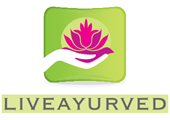One of the most common complaints among teenagers is dealing with acne. Whether you're studying, attending farewells, going on picnics, or enjoying parties, these pesky pimples can suddenly appear, making you want to hide your face! However, the truth is that acne is completely normal. Most often, it is caused by bacteria or hormonal fluctuations.
Acne, also known as acne vulgaris, is a skin condition that develops when hair follicles become clogged with dead skin cells and oil. 'Acne' is classified as a disease, and pimples are one of its symptoms. Listed below are the various types of acne:
1) Comedo
2) Cyst
3) Nodule
4) Papule
5) Acne conglobata
6) Acne mechanics
Among these types, acne conglobata is the most severe form. It can impact areas such as the neck, chest, arms, and buttocks.
Causes of Acne:
Hormonal changes, due to the onset of puberty.
Eating oily, spicy, and junk food frequently.
Bacterial infection.
Women are more likely to have adult acne than men. It is due to periods, polycystic ovary syndrome, and pregnancy.
Steroid and lithium medicines can cause acne.
Smoking and drinking alcohol.
The sebaceous gland, located beneath the skin, produces an oily substance known as sebum. Sebum helps to lubricate the skin and makes it more resistant to moisture. It is continuously released in small amounts into the skin and hair follicles. However, when the sebaceous gland produces excessive sebum, it can clog the pore. This clogged pore becomes a breeding ground for bacteria, which can lead to infection, inflammation, swelling, and redness around the blocked area, resulting in a pimple. Additionally, pimples often leave behind spots and scars, causing the skin to appear dull. If your pimples progress into pustules, it is recommended to consult a dermatologist.
Preventive Measures:
Wash your face 2 times a day with a mild face wash. It is important to remove excess dirt, oil, sweat daily.
Drink 10-12 glasses of water per day.
Do not touch your face frequently.
Limit the use of makeup products.
Use a non-comedogenic, oil-free sunscreen, and try to limit frequent exposure to the sun.
Do not squeeze or pop pimples this causes more harm!
Know your skin type and stick to what suits your skin.
Avoid taking excessive stress, as it triggers the production of hormones that can aggravate acne.
If you have acne, do not worry much because it is a condition you can manage easily with the help of your doctor.
Managing Tips:
Use a topical retinoid if you've mild acne.
Use rose water as a toner, it helps to dry out the pimples.
Moisturize your skin with a water-based moisturizer.
Do not scrub.
Change your pillowcase at least weekly.
Exercise regularly but don't forget to maintain proper hygiene before, during, and after your workouts.
Quit smoking.
Acne has a bad impact on self-esteem and confidence, but be patient, give some time to your skin to heal naturally. Control your temptation of popping the pimple.
Lifestyle Changes to Combat Acne:
Add facial exercises to your routine.
Do pranayama, sarvangasana, bhujangasana, and chakrasana to improve acne.
Try to go makeup-free, or use mineral-based makeup.
Clean your face properly before going to bed.
Eat fruits that are bright in color, like carrots, strawberries, watermelon, and papaya, to keep the skin healthy.
Healthy glowing skin gives you confidence. So take care of your skin.
"Glowing skin is a result of proper skincare, it means you can wear less makeup and let the skin shine through" - Michel Coulombe.
|

